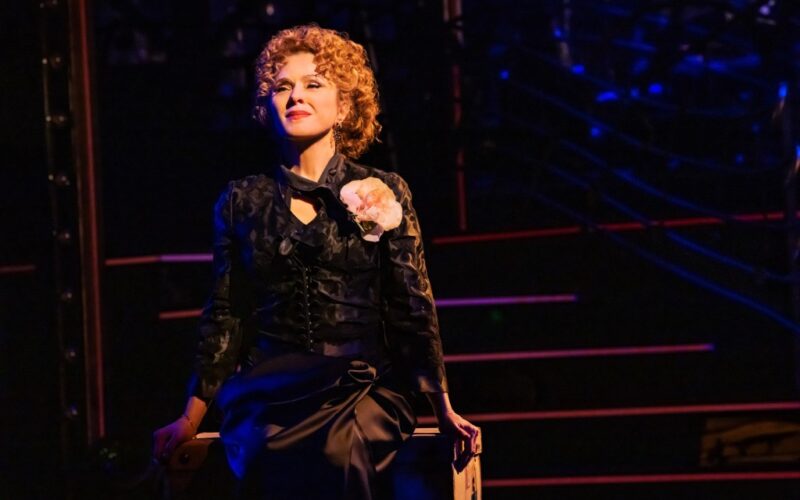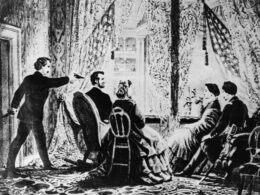Does Broadway need another Stephen Sondheim revue? Sure, if performed by his old friends.
Given the late Sondheim’s godlike status among musical theater fans, it’s hardly surprising that there are several revues of his work, going back nearly half a century.
Ned Sherrin’s “Side by Side,” created in 1976, was the first to discover that the songs in these complex musicals could be enjoyed by audiences out of context. Believe it or not, that was a revelation in 1976. In 1980, “Marry Me a Little” focused on songs that were cut from Sondheim musicals. “Putting it Together” in 1990 focused on process. And in 2010, “Sondheim on Sondheim,” to my mind the most revealing, used prerecorded interview footage to explore the great man’s work through a biographical lens.
So what does “Stephen Sondheim’s Old Friends,” as produced by the British impresario Cameron Mackintosh at the Manhattan Theatre Club, add to the decadeslong Sondheim party?
Simple, really. It’s all about the guests.
Look, there is Bernadette Peters, now 77, performing “Losing My Mind,” while proving that could not be further from the truth. There’s Bonnie Langford, a British familiar face for most of Sondheim’s career, zestfully declaring “I’m Still Here,” a fine thing. There’s Lea Salonga, a star since Mackintosh put her in “Miss Saigon” in 1989, exploring “Somewhere” from “West Side Story.” And Beth Leavel, who clearly has known plenty of ladies who lunch in her long career, taking their ilk down with relish.
That’s just a taste, really. As revues go, “Old Friends” is atypically substantial.
As directed and choreographed by Matthew Bourne, no less, the two-act show clocks in at some 2 hours and 45 minutes, instead of the usual 90 minutes. With that kind of running time — nirvana for us addicts, perhaps a heavy lift for those dragged to the show by a partner — there is time aplenty to explore some 40 numbers. The company has 19 listed performers, although it’s clear that Peters and Salonga are the stars. The orchestra numbers some 14 pieces. And although Matt Kinley has designed a unit set, not so different at first from what you would expect, the environment of shows like “Sweeney Todd” and “West Side Story” does rather creep up on you before retreating again into the wings as the show moves on to another masterwork.

Scanning the choices, you get the sense that Mackintosh both wanted to focus on shows he produced himself and also the songs that people know, Sondheim being as much a populist as he was a perfectionist experimentalist. This isn’t some kind of deep-cut situation or conceptual re-thinking — you get all the greatest hits from “Comedy Tonight” to “Sunday,” “Send in the Clowns” (Peters, natch) to “A Little Priest,” inarguably Sondheim’s greatest lyricfest, performed here by Salonga and Jacob Dickey, and from “Everything’s Coming Up Roses” (Salonga) to a spectacular multivoiced exploration of “Not a Day Goes By,” Sondheim’s most fervent declaration that love is an existential imperative, not a choice, but not necessarily something that will bring happiness or relief from pain.
Some of the takes are intentionally unexpected, such as Peters watching Salonga sing “Children Will Listen,” one of Peters’ own concert mainstays. Mostly though, the company is so large that these hefty veteran talents only get brief moments in the spotlight so they can kill it, while they can.
When the company first emerges for the prologue, your first thought likely will be that you never saw an older Broadway ensemble. It’s quite jarring, to be frank. But you soon see that is the whole point of this enterprise. This is a Sondheim revue mostly forged by people who worked with Sondheim, especially in London. His “old friends.”

The world spinning only forward, it’s already been more than three years since Sondheim’s death. He was working with Mackintosh on this show before he died, which is not something any revue will be able to say again.
But the main takeaway here is that not only is Sondheim now gone, his peers are no spring chickens, either. (Neither are some of us critics who adored his work). And these are real “Old Friends” onstage at the Manhattan Theatre Club.
Indeed, I once stood in a corner and overheard Sondheim describe an actor’s performance to her almost entirely in terms of her being, and not being, Peters. The muse loomed large in the composer’s head, and Peters won’t be working forever.
Indeed, this whole crew was mostly in the original creative kitchens; I say catch ’em while you still can.








